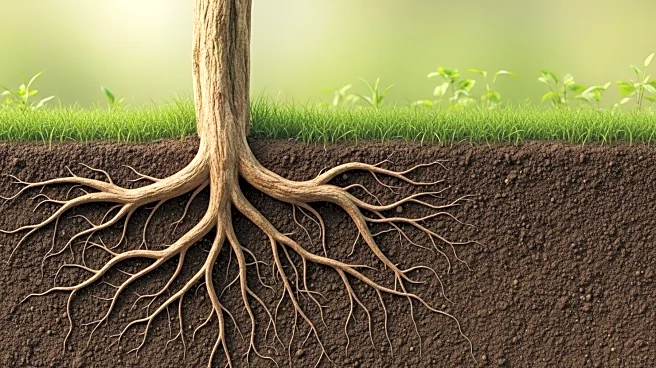What's Happening?
A recent comment published by the Yale Applied Science Synthesis Program emphasizes the necessity for enhanced evidence to support the role of agricultural soil carbon in climate mitigation. The discussion stems from a workshop titled 'Agricultural Soil Carbon: A Call for Improved Evidence of Climate Mitigation,' which gathered experts to address the current gaps in data and validation models. The initiative is part of the Yale Center for Natural Carbon Capture and The Forest School at the Yale School of the Environment. The comment underscores the importance of robust upstream data to validate soil carbon's effectiveness as a climate solution.
Why It's Important?
The significance of this development lies in the potential impact on climate policy and agricultural practices. Improved data on soil carbon could lead to more effective strategies for carbon sequestration, influencing both environmental policy and agricultural industry standards. Stakeholders such as policymakers, environmental groups, and agricultural businesses stand to benefit from clearer evidence, which could drive investment in soil carbon projects and technologies. Conversely, without reliable data, efforts to mitigate climate change through soil carbon may face skepticism and reduced support.
What's Next?
The next steps involve further research and collaboration among scientists, policymakers, and industry leaders to enhance data collection and model validation. This could lead to new guidelines and standards for soil carbon measurement and reporting. Additionally, there may be increased funding opportunities for projects that demonstrate effective carbon sequestration, potentially influencing future climate policies and agricultural practices.
Beyond the Headlines
Beyond immediate implications, this initiative could foster long-term shifts in how agricultural practices are integrated into climate solutions. Ethical considerations regarding land use and the balance between food production and carbon sequestration may arise, prompting broader discussions on sustainable agriculture and environmental stewardship.










